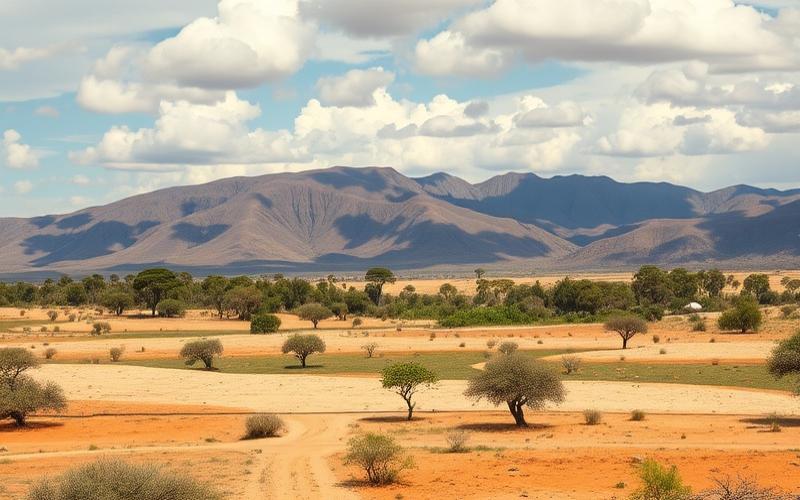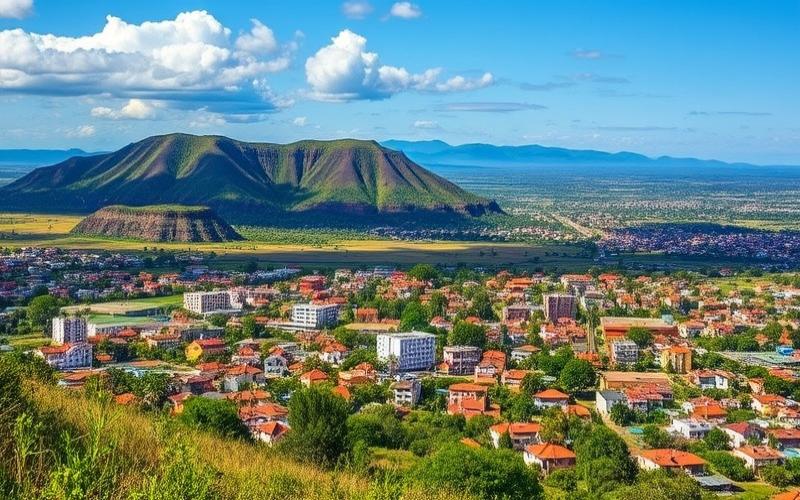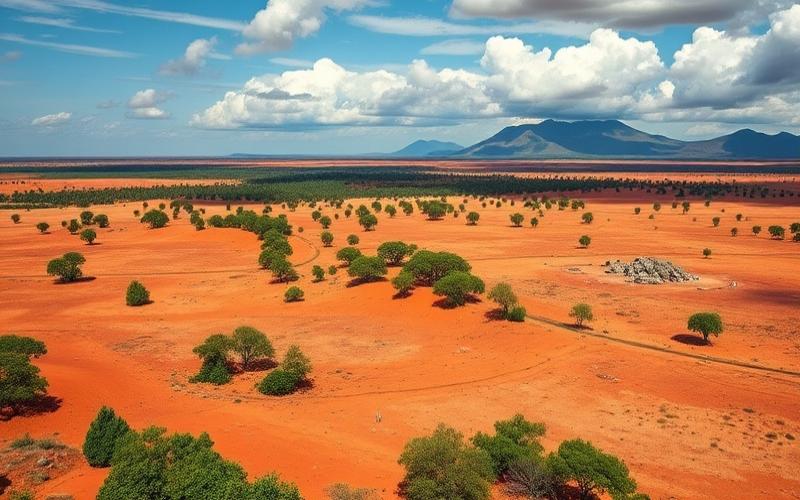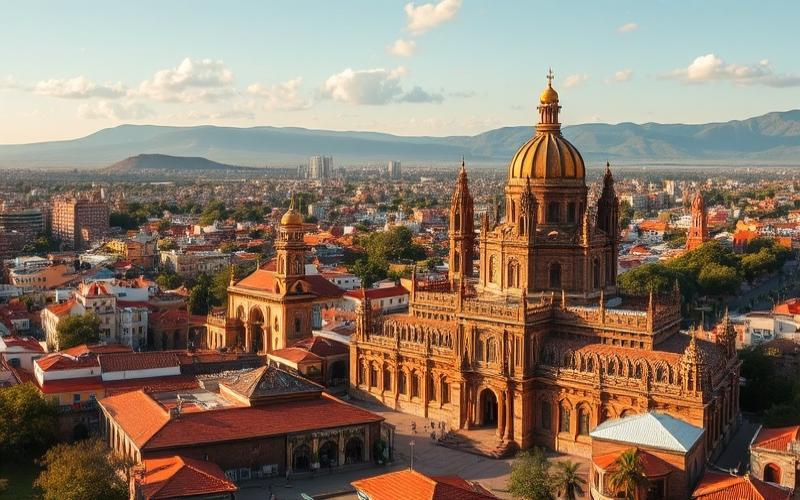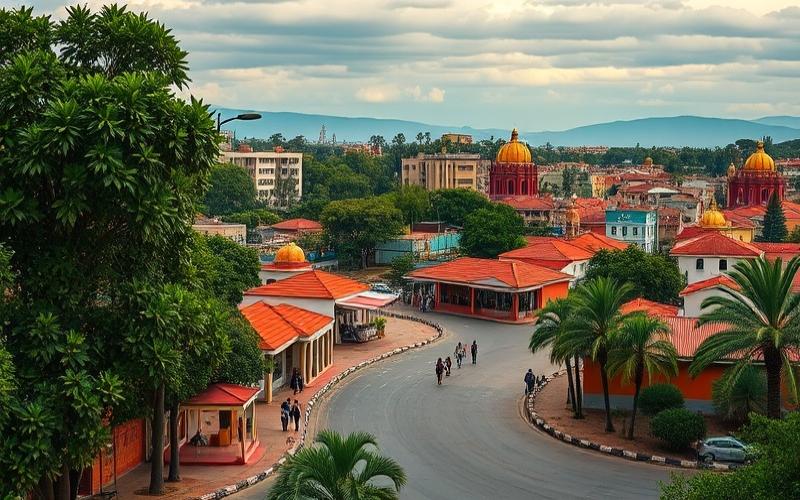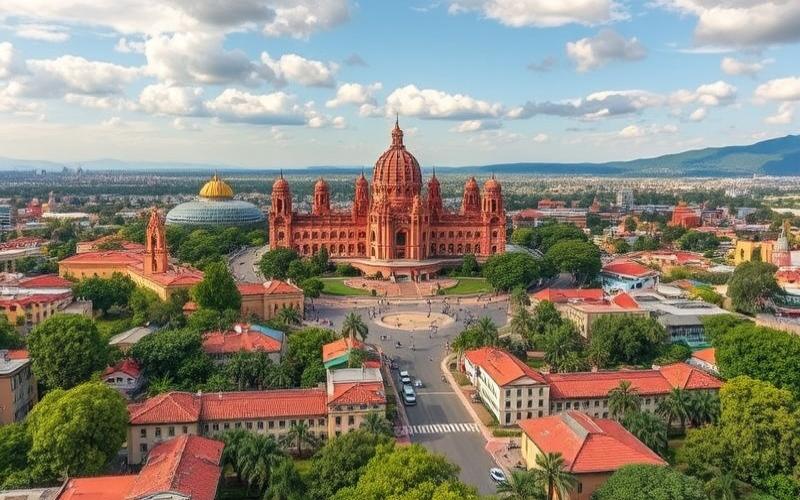
 Published on and written by Cyril Jarnias
Published on and written by Cyril Jarnias
Notary Fees in Madagascar: A Key Element of Transactions
In Madagascar, notary fees play a crucial role in real estate transactions and other legal acts. Understanding how notaries operate and their importance in the country’s legal system is essential for navigating the Malagasy business world with confidence.
Notaries, as essential legal actors, ensure legal security and transaction transparency.
The Malagasy Notarial System in Detail
This article delves into the heart of Madagascar’s notarial system, covering:
- Detailed fee breakdown
- The procedure for calculating notary fees
- Elements to consider for optimizing your legal procedures
Good to Know:
Let’s explore together how to make informed choices through the guide to Malagasy notaries.
Understanding the Notary’s Role in Real Estate Purchases in Madagascar
The notary serves as the cornerstone of every real estate transaction in Madagascar, ensuring legal security and document authenticity. Their primary mission involves authenticating the sales deed, preserving it as transaction evidence, and publishing it to prevent future disputes.
Under Law No. 2007-026 regarding notarial status, certain real estate acts must go through a notary, particularly acts constituting or transferring real property rights valued over 15 million Ariary, emphyteutic leases, and acts establishing or modifying real estate companies.
The notary performs several essential functions in real estate transactions:
- Verifying agreement legality after drafting them
- Preventing conflicts between parties
- Authenticating documents
- Providing legal advice to involved parties
- Ensuring “non-contentious magistracy”
During the transaction process, the notary meticulously verifies the seller’s property rights compliance and examines the mortgage status of the property for sale. They also play a decisive role in compiling and verifying the technical diagnostic file, ensuring all required studies (natural risks, mining risks, technological risks, asbestos assessment, etc.) meet legal requirements.
| Notary Responsibilities | Description |
|---|---|
| Authentication | Guaranteeing transaction incontestability and legally protecting parties |
| Verification | Examining title legality and absence of mortgages |
| Mediation | Acting as mediator during party negotiations |
| Drafting | Preparing sales deeds compliant with legal provisions |
| Preservation | Archiving authenticated documents as transaction proof |
Regarding real estate succession, the notary also plays a central role in estate liquidation and distribution, ensuring authentication of documents necessary for property transfer.
The notary positions themselves as a neutral legal advisor, ensuring fairness between parties. Their presence is particularly important for guaranteeing transparency in real estate transactions, thereby contributing to government policies against fraudulent practices.
The notary profession, though still relatively unknown in Madagascar according to some sources, nevertheless plays a fundamental role in real estate procedure efficiency, particularly in property seizure cases.
Good to Know:
The notary plays a central and mandatory role in real estate transactions in Madagascar, ensuring purchase security and legality. They are responsible for authenticating sales deeds and performing land registry registration, thereby verifying property title validity. Through their expertise, they ensure compliance with local regulations and protect engaged parties’ interests, while verifying payment of applicable taxes or fees. As a neutral advisor, the notary ensures transaction fairness and transparency. Regarding costs, these include their fees calculated as a percentage of property value, plus additional fees related to administrative procedures.
Notary Fees in Madagascar: What You Need to Know
Notary Fees in Madagascar
Notary fees represent an essential element in every real estate transaction in Madagascar. They constitute a set of mandatory costs added to the property purchase price that guarantee the transaction’s legal security.
These fees include several distinct components:
- Registration fees and taxes (approximately 6% of sale price)
- Actual notary fees (2-3% on average)
- Incidental fees (stationery, office expenses)
- Reimbursement of amounts due to third parties
Notary compensation in Madagascar is regulated by law, established by ministerial decree. This regulation ensures cost transparency, though variations may exist depending on transaction complexity.
| Fee Type | Approximate Percentage |
|---|---|
| Registration Fees | 6% of sale price |
| Notary Fees | 2-3% of sale price |
| Agency Fees (if applicable) | 3-5% of sale price |
| Total Additional Fees | 10-15% of sale price |
For services not specifically covered by regulations (consultations, specific advice), notaries may charge fees mutually agreed upon with clients. In such cases, clients must be previously informed about service costs and provide written consent.
It’s important to note that notary fees in Madagascar are generally lower than in France, but nevertheless represent a significant portion of the budget to consider during property acquisition.
To anticipate these costs:
- Request a detailed quote before committing
- Establish an overall budget including all additional fees
- Allow for a safety margin for unexpected expenses
- Negotiate purchase price considering these additional fees
Selecting a competent and experienced notary is crucial for effectively navigating Malagasy administrative complexities. A good notary can advise you on local specifics and help legally optimize your transaction costs.
Good to Know:
Notary fees in Madagascar primarily include registration fees, notary compensation, and other additional costs related to real estate transaction administrative procedures. For property purchases, these fees represent approximately 5 to 10% of acquisition price, while for donations they can reach 2 to 3% of transferred value. Succession fees fall within a similar range, though regional variations exist influenced by local legal specifics. These fees include registration fees (approximately 3%), notary compensation (often a decreasing percentage based on transaction amount), and additional costs (civil status fees, publication costs, etc.). To anticipate and potentially reduce these costs, it’s advisable to obtain multiple quotes and negotiate notary fees. Choosing a competent and experienced notary is crucial for properly navigating administrative steps, avoiding costly errors, and ensuring all parties meet their legal obligations, thereby guaranteeing transaction compliance and security.
Deciphering Hidden Costs in Madagascar Real Estate Transactions
During real estate transactions in Madagascar, several hidden costs can be overlooked by buyers and sellers. Taxes and duties represent a significant portion of these expenses. For example, the transfer tax is a property transfer tax that must be paid when purchasing property. Other legal levies may also apply, such as notary fees for administrative and legal formalities.
Administrative and Legal Costs
Costs related to administrative formalities include:
- Notary fees: these fees cover document drafting services and legal verification required for property registration.
- Land registration: it’s essential to ensure the property is properly registered to avoid future disputes.
- Legal verifications: these checks guarantee the property is free from hidden defects or disputes.
Unexpected Expenses
Unexpected expenses may include:
- Bank fees: for mortgages or loans, management fees may be applied.
- Renovation or improvement costs: often, buyers must perform work to adapt the property to their needs.
Practical Tips
To prepare a more accurate budget and avoid financial surprises, it’s advisable to:
- Create a comprehensive cost list: include all taxes, administrative fees, and unexpected expenses.
- Negotiate fees with professionals: for example, agency fees can be negotiated by leveraging competition.
- Ensure understanding of purchase terms: formalize all agreements in writing to protect your interests.
Cost Summary Table
| Cost Type | Description |
|---|---|
| Taxes and Duties | Transfer tax, other legal levies |
| Notary Fees | Legal and administrative services |
| Land Registration | Property formalization |
| Legal Verifications | Guarantee against hidden defects |
| Bank Fees | Mortgages or loans |
| Renovation Costs | Work required to adapt the property |
Steps to Avoid Surprises
- Carefully evaluate location: consider neighborhood future development and surrounding infrastructure.
- Understand cultural specifics: adopt a respectful and patient approach during negotiations.
- Take time to decide: avoid hasty decisions to ensure the property matches needs and objectives.
Good to Know:
During real estate transactions in Madagascar, hidden fees often surprise buyers and sellers. Beyond standard fees, they should expect transfer tax typically amounting to 5% of purchase price, plus other less obvious legal levies. Administrative formalities like land registration and legal verifications requiring notary involvement generate additional costs. Furthermore, unexpected costs may arise, such as bank fees on mortgages. To avoid financial surprises, it’s advisable to prepare a budget incorporating all these elements and consult experts to more accurately assess total costs.
Disclaimer: The information provided on this website is for informational purposes only and does not constitute financial, legal, or professional advice. We encourage you to consult qualified experts before making any investment, real estate, or expatriation decisions. Although we strive to maintain up-to-date and accurate information, we do not guarantee the completeness, accuracy, or timeliness of the proposed content. As investment and expatriation involve risks, we disclaim any liability for potential losses or damages arising from the use of this site. Your use of this site confirms your acceptance of these terms and your understanding of the associated risks.

